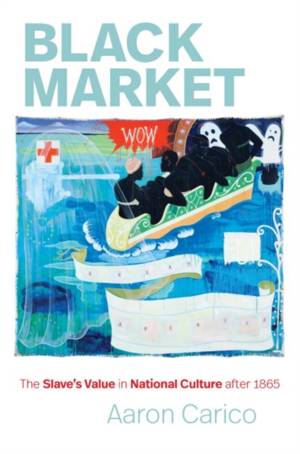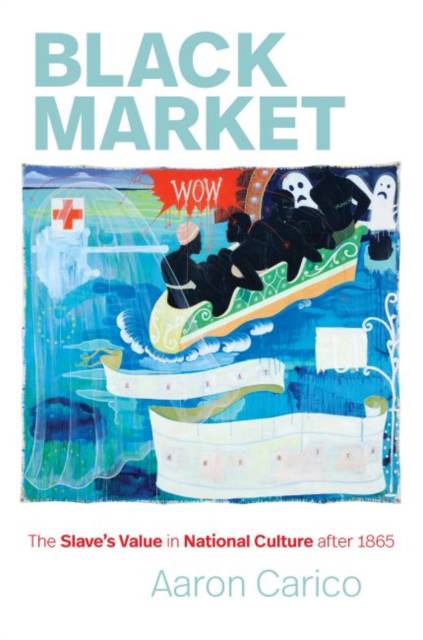
Door een staking bij bpost kan je online bestelling op dit moment iets langer onderweg zijn dan voorzien. Dringend iets nodig? Onze winkels ontvangen jou met open armen!
- Afhalen na 1 uur in een winkel met voorraad
- Gratis thuislevering in België vanaf € 30
- Ruim aanbod met 7 miljoen producten
Door een staking bij bpost kan je online bestelling op dit moment iets langer onderweg zijn dan voorzien. Dringend iets nodig? Onze winkels ontvangen jou met open armen!
- Afhalen na 1 uur in een winkel met voorraad
- Gratis thuislevering in België vanaf € 30
- Ruim aanbod met 7 miljoen producten
Zoeken
€ 167,95
+ 335 punten
Uitvoering
Omschrijving
On the eve of the Civil War, the estimated value of the U.S. enslaved population exceeded $3 billion - triple that of investments nationwide in factories, railroads, and banks combined, and worth more even than the South's lucrative farmland. Not only an object to be traded and used, the slave was also a kind of currency, a form of value that anchored the market itself. And this value was not destroyed in the war. Slavery still structured social relations and cultural production in the United States more than a century after it was formally abolished. As Aaron Carico reveals in Black Market, slavery's engine of capital accumulation was preserved and transformed, and the slave commodity survived emancipation. Through both archival research and lucid readings of literature, art, and law, from the plight of the Fourteenth Amendment to the myth of the cowboy, Carico breaks open the icons of liberalism to expose the shaping influence of slavery's political economy in America after 1865. Ultimately, Black Market shows how a radically incomplete and fundamentally failed abolition enabled the emergence of a modern nation-state, in which slavery still determined - and now goes on to determine - economic, political, and cultural life.
Specificaties
Betrokkenen
- Auteur(s):
- Uitgeverij:
Inhoud
- Aantal bladzijden:
- 296
- Taal:
- Engels
- Reeks:
Eigenschappen
- Productcode (EAN):
- 9781469655574
- Verschijningsdatum:
- 22/06/2020
- Uitvoering:
- Hardcover
- Formaat:
- Genaaid
- Afmetingen:
- 156 mm x 234 mm
- Gewicht:
- 630 g

Alleen bij Standaard Boekhandel
+ 335 punten op je klantenkaart van Standaard Boekhandel
Beoordelingen
We publiceren alleen reviews die voldoen aan de voorwaarden voor reviews. Bekijk onze voorwaarden voor reviews.











